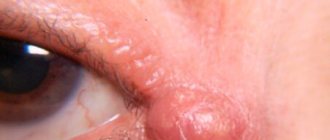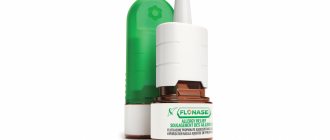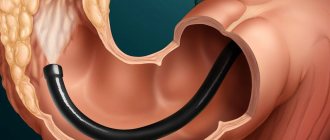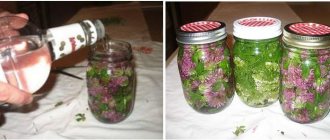Buying good medicine for high blood pressure is not easy. A pharmacist at a pharmacy will rarely help; he will immediately send you to a doctor. Is it really so difficult to recommend a reliable drug at an affordable price? Let's try to understand the types of drugs and the principles of taking them.
Get all the necessary tests at a discount of 10% to 25% using the promotional code “MOESHEALTH”. Visit one of the many conveniently located KDL medical offices https://bit.ly/3gIM9wP or call a nurse for free to collect biomaterial using the innovative laboratory service LifeTime https://bit.ly/3yd9Pj2
Hypertension
Few people in our time have not heard anything about hypertension, or high blood pressure. This is not surprising - after all, in the modern world, every third adult is faced with this problem and is forced to look for ways to solve it.
Blood pressure is considered elevated if its value is 140/90 mmHg. Art. or higher, regardless of the person's age. Most often, high blood pressure is an independent disease called hypertension. But sometimes hypertension is a symptom of some other disease (for example, kidney disease, thyroid disease, adrenal gland disease). In this case, in addition to reducing the numbers, the underlying disease must be treated.
Categories of medications for normalizing blood pressure
All medications that can normalize blood pressure and relieve attacks of hypertension can be divided into several categories:
- Beta blockers. Such medications affect the heart rhythm, reducing its frequency. Not every hypertensive patient can use such drugs. This is especially true for those whose normal rhythm does not exceed 60 beats per minute.
- ACE inhibitors. Such medications are indicated for those who have high blood pressure due to excess production of hormones that affect vasoconstriction. Drugs are ways to reduce the production of hormones, the action of which reduces the lumen of the circulatory system.
- Diuretics. These medications directly affect kidney function. People call them diuretics. Some patients report sudden weakness and dizziness after taking one tablet. Such drugs should not be taken in long courses. They are used to relieve swelling. Frequent use of diuretics may cause seizures.
- Calcium antagonists. Such agents have a relaxing effect on the walls of blood vessels, due to which they expand and pressure decreases. Treatment with calcium antagonists may cause dizziness.
Only a complete diagnosis can give an accurate answer as to which drug should be used to reduce blood pressure in each specific case. Self-administration of medications that affect blood pressure is unacceptable.
Symptoms
Symptoms that may indicate increased blood pressure include:
- headache;
- dizziness;
- “flies” before the eyes;
- discomfort in the heart area.
If any of them appear, you should measure your blood pressure. If it is higher than normal, you need to take care of reducing it.
Does it happen that nothing bothers a person, but his blood pressure is elevated? Unfortunately, such cases are not uncommon. This is why it is so important to control your blood pressure even when you feel normal. Many people mistakenly think that if there are no symptoms, then there is no need to reduce blood pressure. Indeed, why take pills if you feel good? Alas, the frequency of complications of hypertension does not depend on whether you feel it or not.
Hypertension can cause serious complications.
Dangerous complications:
- myocardial infarction;
- stroke;
- renal failure.
The higher the pressure, the greater the risk of their development.
Preparations with herbal ingredients
And there is also a group of drugs that increase blood pressure, based on components of plant origin. What can you take from this group of medications? The list of medications is quite extensive and includes:
- Chinese lemongrass;
- Eleutherococcus;
- lure tincture;
- ginseng tincture;
- tincture of radiola rosea;
- pantocrine
Adaptogens are plant components that are used to increase blood pressure.
Chinese lemongrass
The product is part of a group of drugs that have tonic and adaptogenic properties. Its use helps to increase blood pressure. It is forbidden to drink the tincture if the following conditions are diagnosed:
- acute period of any disease;
- hypertonic disease;
- pathologies of the heart, blood vessels, liver;
- disturbances in the functioning of the central nervous system;
- epilepsy, tendency to seizures;
- traumatic brain injuries;
- severe overexcitation of the central nervous system, accompanied by insomnia;
- mental disorders;
- allergy to the components of the product.
The tincture must be taken in a course. Its duration is two weeks.
Eleutherococcus
In the treatment of hypotension, a liquid infusion from the roots of the plant is used. The plant is widely known for its restorative, tonic and adaptogenic effect. The product improves mental abilities, performance, memory, vision, and also enhances immune defense and overall tone of the body.
The tincture can be used for both medicinal and preventive purposes. In the latter case, you need to drink 20 drops twice a day. If it is necessary to carry out a course of treatment, the dosage is increased to 30 drops, and the frequency of administration is 3 times a day.
Important! The tincture should be taken after meals.
The duration of treatment is 15–30 days. Then you need to take a two-week break and repeat the dose if necessary. If the duration of therapy is more than two calendar months, then the development of side effects is possible.
Treatment of hypotension
These include increased irritability, poor performance, increased blood pressure, sleep disturbances, increased anxiety, impaired digestion, and weight gain.
Eleutherococcus tincture should not be taken in the evening. Otherwise, the development of insomnia is possible. And also, hypertensive patients should avoid using the drug, since it helps to increase blood pressure.
Signs of overdose: disturbances in the digestive system, insomnia, poor performance, allergic reaction. If such conditions occur, the drug should be stopped. If necessary, symptomatic therapy can be carried out.
Tincture of enticement
Tincture based on bait is used not only in folk treatment. It is also recognized by traditional medicine. The drug has general strengthening and adaptogenic properties. Course use of the drug helps to increase blood pressure and overall body tone, restore reserves of vitamins and microelements.
The main indications for use of the tincture are:
- asthenic conditions;
- hypotension;
- vegetative-vascular dystonia.
It is necessary to drink the drug in the first half of the day, as it has a powerful tonic effect. The latest hour before which you can drink the tincture is 6 pm. The total duration of the course is a full calendar month.
The daily dosage is calculated individually and depends on the desired result.
Ginseng tincture
What else can you drink if you have hypotension? Tincture based on ginseng root has proven itself well. It has a general tonic effect and is recommended for use in cases of hypotension, asthenia, neurasthenia, etc. The composition should be taken three times a day, half an hour before meals. Single dosage – 40 drops.
During treatment, the development of the following side symptoms is possible:
- headache;
- attacks of nausea, vomiting;
- sleep disturbances due to a strong tonic effect;
- increased nervousness;
- tachycardia;
- diarrhea;
- allergic reaction;
- nervous overexcitation;
- nosebleeds.
The use of the tincture should be avoided in childhood and during the period of bearing/breastfeeding a child.
Rhodiola rosea tincture
Rhodiola rosea has powerful adaptogenic properties. Take the product 30 minutes before meals twice a day. A single dose is 20 drops. The duration of the course is a full calendar month.
Pantocrine
The drug is a biological stimulant, the basis of which is the extract of forest deer antlers. Dosage regimen: 1 tablet per day. The duration of the course is two weeks.
Herbal-based drugs that raise blood pressure cause much less harm to the body and central nervous system than drugs of chemical origin. In addition, they can be taken exclusively for preventive purposes.
Hypotension is no less serious a disease than hypertension and also requires treatment. But before starting to take any medications, it is necessary to find out the cause of the pathology by contacting a specialized specialist.
Treatment
Almost all patients with hypertension need blood pressure lowering medications. At the initial stage of the disease, with a slight increase in blood pressure, it is sometimes possible to bring the indicators back to normal by changing lifestyle (diet, weight loss, stress management, physical activity). But most patients still require constant medication. If treatment is stopped, high blood pressure, and along with it unpleasant symptoms, and the risk of complications return. During treatment, it is very important to monitor the level of pressure and keep a diary by the patient in which his indicators are recorded. This allows you to select the optimal treatment and accurately assess its effect.
Nowadays, a large number of drugs have been created that reduce blood pressure. Let's look at the main groups of these drugs.
ACE inhibitors
- Enap;
- Diroton;
- Prestarium A;
- Hartil.
They suppress (inhibit) one of the enzymes involved in raising blood pressure and are often used as the first choice drugs when starting treatment for hypertension.
Advantages of this group:
- do not affect the pulse rate (can be prescribed for any pulse rate);
- do not cause an increase in cholesterol and blood sugar levels;
- for diabetes mellitus and chronic kidney disease, they not only reduce blood pressure, but also prevent the development of renal failure;
- these medications are also effective for chronic heart failure.
But this group is not suitable for pregnant (or planning pregnancy) women - it can have a negative effect on the fetus. Also, sometimes, while taking these medications, a dry cough appears. If it greatly bothers the patient, it is necessary to replace it with a drug from another group.
ACE inhibitors are not suitable for pregnant women, because negatively affect the fetus.
Angiotensin receptor blockers (ARBs).
- Lozap;
- Valsacor;
- Aprovel;
- Edarby.
Their mechanism of action is close to the drugs of the previous group, but blocks the process at a different level. In general, they have the same properties as ACE inhibitors. They are often prescribed if a dry cough develops while taking ACE inhibitors, since this group does not have such a side effect.
Beta blockers
- Concor;
- Betalok;
- Nebilet.
They reduce blood pressure by acting on beta-adrenergic receptors of the heart and blood vessels. In addition to lowering blood pressure, these medications slow down the heart rate. They are preferable if you are prone to rapid heartbeats, but if your heart rate is initially low, they are not recommended. When selecting a dose and treatment, pulse control is required (it should be at least 50 beats per minute).
They are also recommended for use when hypertension is combined with coronary heart disease or chronic heart failure. And when combined with bronchial asthma or chronic obstructive pulmonary disease (COPD), they should be used with caution - bronchospasm may increase.
Calcium antagonists
They reduce blood pressure by affecting the calcium channels of cells. They can be used when hypertension is combined with bronchial asthma, COPD, diabetes mellitus, and kidney disease.
Diltiazem, Verapamil, Isoptin (extended form) - also reduce heart rate and can be used as an alternative to beta blockers.
Cordaflex, Normodipin, Lerkamen - without reducing the pulse, they have a vasodilating effect. They are especially effective in increasing diastolic (“bottom”) pressure.
Diuretics
- Hypothiazide;
- Indapamide;
- Arifon-retard;
- Indapamide retard.
Remove excess water and sodium from the body. Especially relevant for people with edema or signs of heart failure. Long-acting indapamide has the least pronounced diuretic effect and minimal side effects, but at the same time it stabilizes blood pressure well.
Diuretics are suitable for people with signs of heart failure.
This group should be used with caution if blood sugar and uric acid levels are elevated.
Centrally acting drugs
- Physiotens;
- Albarel.
They reduce blood pressure by acting on receptors in the brain. As a rule, they are added to combinations of other drugs if the desired effect cannot be achieved.
Combined products
When treating hypertension, combinations of several active ingredients are often used. According to research, the use of combinations is more effective than simply increasing the dose of the drug and causes fewer side effects. Many medications, when used together, complement and enhance each other's effect. That is why many combination drugs have been created, when one tablet contains 2, and sometimes three drugs at once. Their use is both effective and very convenient.
Combinations of 2 drugs:
- ACE inhibitor + diuretic: Enap N, co-diroton, noliprel;
- ACE inhibitor + calcium antagonist: tarka, dalneva, equator;
- angiotensin receptor blocker + diuretic: lozap plus, valsacor N, edarbi clo;
- angiotensin receptor blocker + calcium antagonist: lortenza, vamloset, aprovasc;
- beta blocker + calcium antagonist: Concor AM, Logimax.
Combinations of 3 drugs:
- ACE inhibitor + diuretic + calcium antagonist: co-dalneva, triplixam;
- angiotensin receptor blocker + diuretic + calcium antagonist: co-vamloset, Co-Exforge.
When selecting treatment for hypertension, they usually start with small doses and, if necessary, gradually increase them. You cannot sharply reduce blood pressure to normal if it is initially very high. It is better to first stabilize it at a lower level (for example, if the initial blood pressure is more than 180/100, reach values not exceeding 150-160/90 mm Hg), and after some time try to intensify therapy, taking into account its tolerability.
Finding the optimal treatment is not easy. Even doctors need time for this. The patient's active participation in keeping a diary and taking medications regularly is mandatory. Changing the treatment regimen on your own or stopping it can lead to unpleasant consequences, including complications of hypertension (heart attacks, strokes). If for some reason you change your medication intake, do not hide it from your doctor. Only together can we achieve sustainable results in treatment.
List of medicines for high blood pressure
There are many reasons that can cause a decrease in blood pressure (blood pressure). These may include chronic fatigue, stressful situations, as well as hereditary diseases. It is worth noting that in older people, hypotension is much less common than hypertension.
There are no tablets designed specifically to increase blood pressure. Most of the drugs recommended for hypotension have an increase in blood pressure as a side effect, so they should be taken only after consultation with the treating doctor.
Many people with low blood pressure prefer to drink strong coffee - the drink is a natural stimulant - or take caffeine-based medications. But in case of overdose, the substance can cause the development of arrhythmia and breathing problems.
Before starting to take any drug, you must consult with your doctor. Most often, patients are prescribed the following tablets for low blood pressure:
- Caffeine sodium benzoate;
- Cordiamine;
- Etimizole;
- Ephedrine;
- Citramon;
- Epinephrine;
- Midodrine.
Caffeine sodium benzoate
A widely known drug intended to raise low blood pressure. Belongs to the group of psychostimulants. Caffeine, acting as an active ingredient, promotes irritation of the vasomotor center of the brain. Due to its direct effect on the condition of blood vessels (the substance causes their narrowing), it helps to quickly increase blood pressure.
Cordiamine
Cordiamine belongs to the category of analeptics, has a stimulating effect on the central nervous system and chemoreceptors. By irritating the vasomotor center, the drug increases peripheral vascular resistance, which leads to normalization of blood pressure. Cordiamine helps increase blood pressure levels in a short time. After taking the tablet, blood pressure stabilizes within 10 minutes.
Etimizole
Etimizole belongs to the group of analeptics. Against the background of its use, the respiratory center is excited and a general vasoconstrictor effect develops. As a result, a person's respiratory rate, ventilation volume, and blood pressure increase.
Ephedrine
Ephedrine is a potent medication that helps quickly increase blood pressure in emergency situations.
Important! Ephedrine is a prescription drug.
Exceeding recommended dosages can cause deterioration of the condition and the development of complications such as:
- overexcitation of the nervous system;
- attacks of nausea and vomiting;
- sleep disorders, expressed in the development of insomnia;
- uncontrolled hypertension.
Citramon
Citramon (another name for the drug is Askofen) is a well-known drug that can be purchased at any pharmacy without a prescription. The product contains three active ingredients - caffeine, aspirin and paracetamol.
Epinephrine
Epinephrine causes a narrowing of the lumen of the blood vessels, which ultimately leads to an increase in blood pressure. The drug is indicated in the following cases, accompanied by a decrease in blood pressure:
- drug intoxication;
- renal failure;
- postoperative shock.
Its use should be avoided during pregnancy, confirmed hypertension, cardiomyopathy and supraventricular tachyarrhythmia.
Midodrine
Midodrine belongs to the group of alpha-adrenergic agonists. The drug is used in the development of a hypertensive crisis, fainting against the background of a sharp drop in blood pressure. An increase in the latter occurs against the background of rapid narrowing of the lumens of blood vessels.
The medicine is contraindicated for use in the following cases:
- increased activity of the thyroid gland;
- disorders of the kidneys;
- hypertonic disease;
- pheochromocytoma;
- heart failure.
Caffeamine
This drug for increasing low blood pressure is available in tablets and is sold by prescription. Belongs to the group of combined psychostimulants, the active substances are caffeine and ergotamine. “Caffetamine” tones the nervous system and constricts blood vessels.
This medicine is prescribed for migraines, hypotension and intracranial hypertension.
Among the contraindications: allergic reactions to the components of the drug, age under 18 years, atherosclerosis, high blood pressure, pregnancy and breastfeeding, insomnia, glaucoma, psychosis, serious heart disease, advanced age of the patient. Side effects: nausea, increased sweating, agitation, tachycardia.
Caffeamine
KRKA-RUS, Russia
The drug is used for: Vasoparalytic form of migraine;
arterial hypotension; as a means of lowering intracranial pressure in vascular, traumatic and infectious lesions of the central nervous system. from 151
5.0 1 review
503
- Like
- Write a review
Read also How to treat migraine: the best drugs Top 5 best drugs against migraine
Apilak
This low blood pressure medicine comes in the form of sublingual tablets and ointment. "Apilak" belongs to the group of natural stimulants for the complex treatment of asthenia, neurotic disorders, and hypotension. Apilak contains a complex of biologically active substances, minerals and vitamins. The active substance is royal jelly. "Apilak" improves vascular tone, tones the nervous system and stimulates the body as a whole.
Contraindications include: allergies to bee products, age under 18 years, Addison's disease, hypertension.
How to choose medications for low blood pressure?
Medicines for hypotension are rarely prescribed. Usually, to improve the condition, it is enough to change your lifestyle: adjust your daily routine, eat right, drink more fluids and increase the amount of salt.
If drug support for low blood pressure is needed, drugs that increase the volume of blood circulating in the body or drugs that spasm peripheral arteries are prescribed. This helps increase blood pressure because blood will flow through narrower vessels under greater pressure.
All medications for low blood pressure are prescribed only by a doctor, having previously ruled out pathological causes of low blood pressure. Usually, drugs of synthetic or plant origin are used - tonics and vasoconstrictors.
Here are the safest and most effective pills for low blood pressure.
Caffeine
This drug is sold both in tablets and in a solution for subcutaneous administration. Caffeine is a natural nervous system stimulant that stimulates the nervous system, increases vascular tone, improves blood circulation and increases blood pressure. “Caffeine” is prescribed for moderate hypotension, decreased performance, general malaise, vascular headaches, and drowsiness.
Read also: Top 10 best blood thinners Blood thinners
It is believed that “Caffeine” is a safe medicine, but there are contraindications to its use: the body’s sensitivity to its components, age under 12 years, severe heart disease (cardiosclerosis, coronary artery disease, heart attack), mental disorders, hypertension, arrhythmia, insomnia, depression. It is prescribed with caution to those who suffer from glaucoma and other vision problems.
Side effects from taking Caffeine include rapid heartbeat, sweating, nausea, trembling, and dizziness. After the effects of caffeine wear off, a person may experience weakness, inhibition of the nervous system, or general malaise.
Caffeine
JSC "Tatkhimfarmpreparaty", Russia; Borisov medical plant drugs, Belarus; PrJSC Pharmaceutical Company “DARNITSA”, Ukraine; Novosibkhimpharm OJSC, Russia; JSC Dalkhimfarm, Russia; "Moskhimfarmpreparaty" named after. N. A. Semashko, Russia; PJSC Scientific and Production Center "Borshchagovsky Chemical Plant", Ukraine
A drug whose range of uses includes: Diseases accompanied by depression of the central nervous system, functions of the cardiovascular and respiratory systems (including poisoning with opioid analgesics, infectious diseases), cerebral vascular spasms, decreased mental and physical performance, drowsiness.
from 35
5.0 1 review
700
- Like
- Write a review










